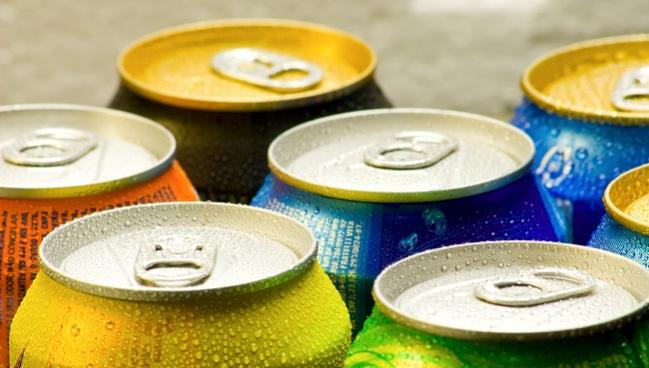New AHA Advisory Waffles on Artificially Sweetened Drinks, Citing Dearth of Studies
The advisory urges people to choose water, and for researchers to take a deeper look.

Children should not, habitually, drink artificially sweetened beverages, but they may play a provisional role for adults trying to transition away from higher-calorie drinks and foods, a new science advisory from the American Heart Association (AHA) concludes.
Even these recommendations are tenuous, however, given the dearth of studies addressing the cardiovascular harms or benefits of these drinks, the writing group, chaired by Rachel K. Johnson, PhD (University of Vermont, Burlington, VT), observes.
“It is clear that there is a need for further research on the effects of low-calorie sweetened beverages as they pertain to energy balance, cardiometabolic risk factors, and risk of CVD and other chronic diseases,” Johnson and colleagues write.
Sugary drinks have been the target of many public health campaigns recently, aimed at cutting consumption to improve public health. Low-calorie sweetened beverages, such as diet sodas, may seem like a viable replacement, since they have a similar taste without the calories; however, these drinks have received some criticism and may be associated with adverse health outcomes.
According to the AHA statement, low-calorie sweeteners are extremely prevalent in the United States, appearing in 19% of drinks consumed by kids and 32% of beverages consumed by adults. Low-calorie sweetened beverages also make up the highest proportion of foods and drinks containing artificial sweeteners worldwide. Despite this prevalence, the scientific research behind these types of beverages has been inconclusive.
“The replacement of sugar-sweetened beverages and low-calorie sweeteners has been debated because of the potential safety concerns and inconsistent findings regarding their health effects in observational studies and intervention trials,” the authors say.
Findings Dulled by Confounding Factors
In the AHA advisory, published last week in Circulation, the authors evaluated observational studies and clinical trials examining the effect of low-calorie sweetened beverages on factors related to cardiometabolic risk, such as body weight, diabetes, stroke, and CVD. They also collected evidence on cognitive outcomes like dementia.
Consumption of low-calorie sweetened beverages correlated with prevalence of type 2 diabetes, but these associations become much weaker after adjusting for additional patient factors such as body mass index and adiposity.
“Individuals who have excess body weight are more likely to choose low-calorie sweeteners, so there are no data to support a cause and effect relationship there,” co-author Alice Lichtenstein, DSc (Tufts University, Boston, MA), told TCTMD.
One meta-analysis of 10 prospective studies found that beverages with low-calorie sweeteners were associated with a 25% higher risk of type 2 diabetes; however, the risk shrunk to 8% after accounting for body weight. Scientific reviews also have found positive associations between consumption of low-calorie sweetened beverages and the risks of obesity, hypertension, metabolic syndrome as well as cardiovascular events, but the authors caution that additional health factors may have influenced this association.
“Findings from these observational studies may be confounded by related diet factors and lifestyle behaviors attributable to reverse causation, whereby people trying to control their weight consume low-calorie sweetened beverages as one strategy, with an overall approach to weight control that is typically unsuccessful,” the statement reads.
Consumption of artificially sweetened drinks was not associated with a higher risk of coronary heart disease. Though some studies have tied diet soda consumption to higher risk of stroke, after adjusting for conditions such as diabetes and hypertension the effect was lessened. One study analyzing over 127,450 individuals found that diet soda drinkers were 16% more likely to suffer a stroke than non-soda drinkers (RR 1.16; 95% CI 1.05-1.28), but that added risk decreased to 9% after adjusting for confounding factors (RR 1.09; 95% CI 1.04-1.14).
An analysis from the Framingham Heart Study also linked low-calorie beverage consumption to a nearly tripled risk of stroke (HR 2.96) and Alzheimer’s dementia (HR 2.89), and to nearly two-and-half times the risk of all-cause dementia (HR 2.47). However, it is noted in the paper that this particular population had a high prevalence of cardiovascular risk factors like diabetes that could have impacted these results.
“Taken together, some observational data suggest a positive association between long-term consumption of low-calorie sweetened beverages with risk of type 2 diabetes mellitus and CVD,” Johnson et al say. “However, reverse causality and adiposity cannot be ruled out as driving factors in the observations.”
Substituting Sugary Beverages With Diet Drinks
There is some evidence suggesting that substituting low-calorie beverages could result in moderate weight loss, but the authors note that these studies are generally short-term and have small sample sizes. Additionally, they add, while beverages with low-calorie sweeteners do have fewer calories than sugar-sweetened beverages, they will only be effective if people don’t replace those calories elsewhere in their diet.
While Johnson and colleagues advise that water, seltzer, and other nonsweetened beverages are better for health, for people accustomed to drinking sugar-sweetened beverages, drinks with artificial sweetener could help them transition to healthier options. “This approach may be particularly helpful for persons who are habituated to a sweet-tasting beverage and for whom water, at least initially, is undesirable option,” they say.
Until more solid research is published, the authors discourage children from consuming these low-calorie sweetened beverages and advise that people select healthier options to quench their thirst.
“It's certainly better to be cautious in terms of children when you think about the long-term health outcomes,” Lichtenstein said. “At this point, there is no value to drinking sugar-sweetened beverages and there is no independent value of consuming low-calorie sweetened beverages, so that's why the general recommendation is to shift towards more water.”
Lucy Hicks is the 2018 recipient of the Jason Kahn Fellowship in Medical Journalism. She is currently a master’s student…
Read Full BioSources
Johnson R, Lichtenstein A, Anderson C, et al. Low-calorie sweetened beverages and cardiometabolic health: a science advisory from the American Heart Association. Circulation. 2018;138:e1-15.
Disclosures
- Johnson and Lichtenstein report no relevant conflicts of interest.


Comments